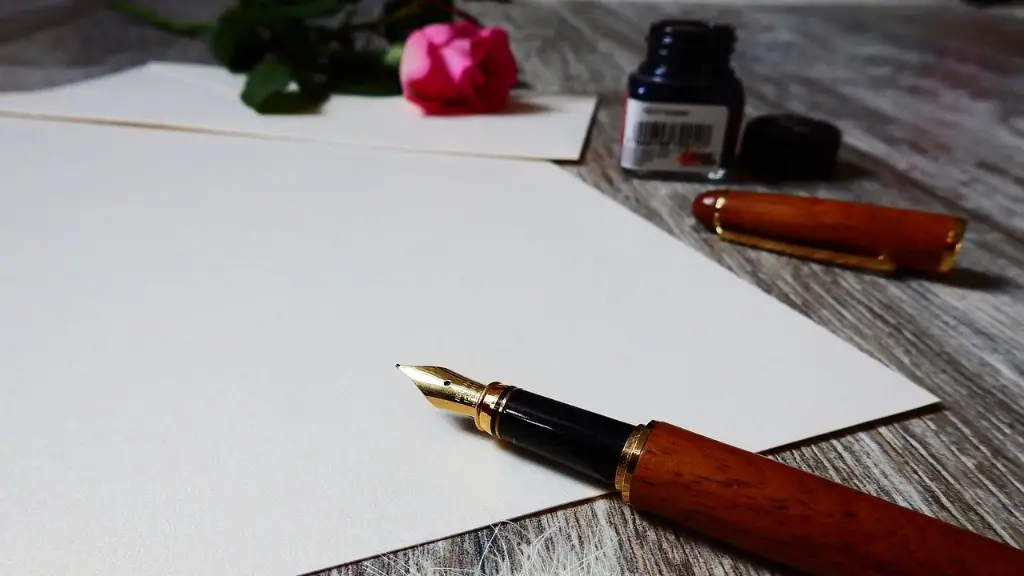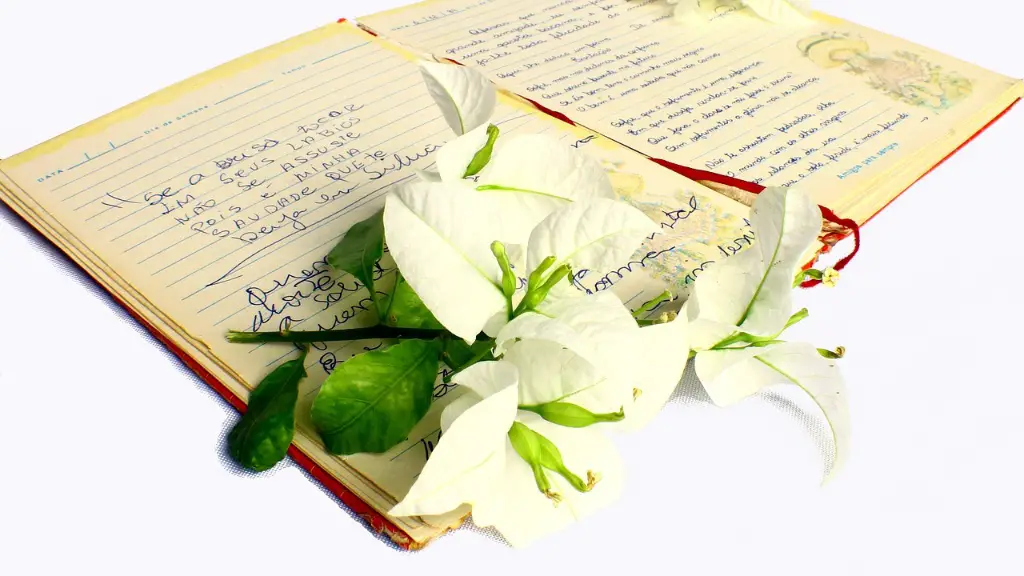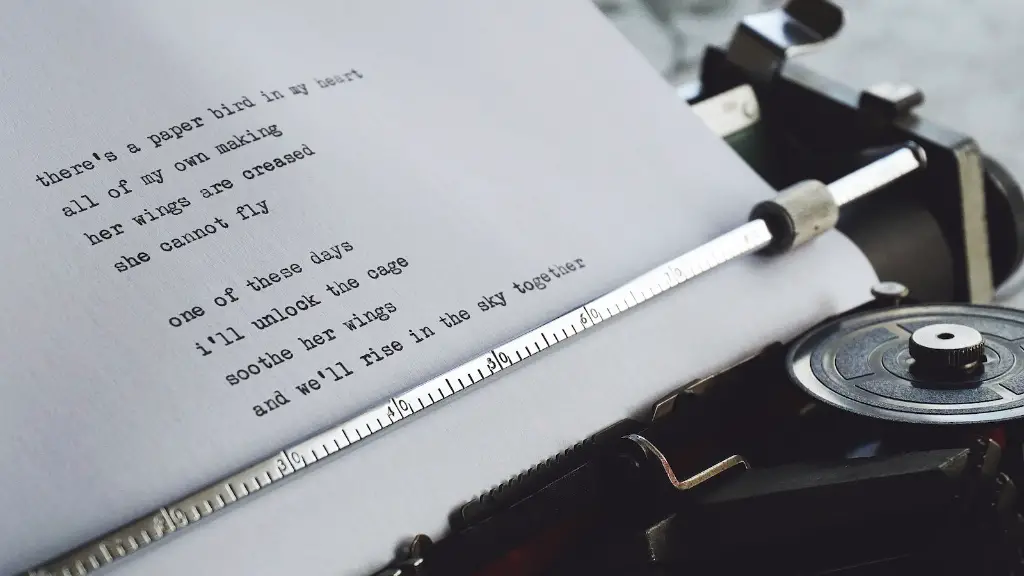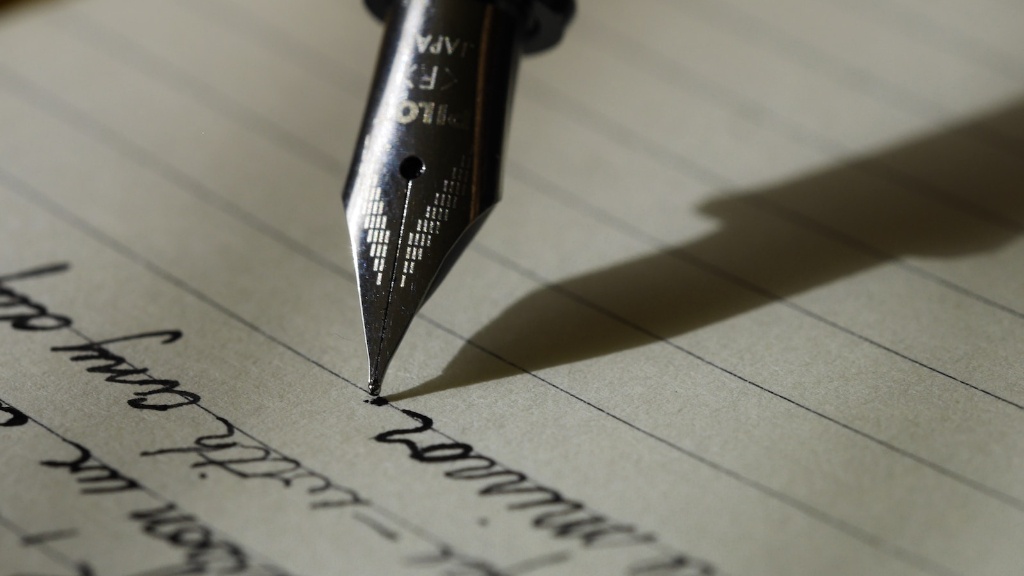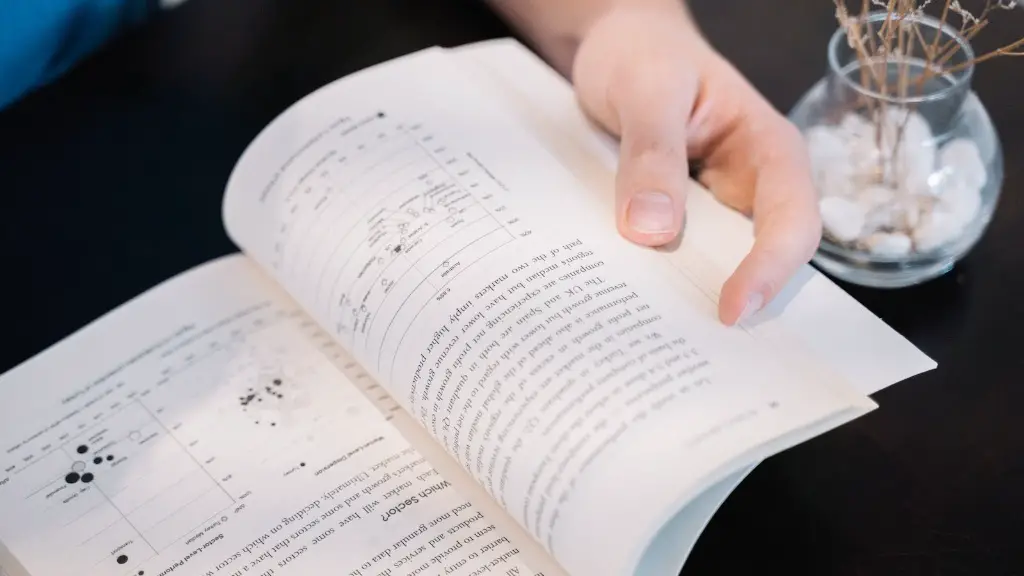Poetry is a form of creative writing filled with language and imagery, where the poet expresses ideas, feelings, and emotions. Each line of poetry contains words that have different meanings and uses sound devices in addition to visual symbols and patterns. Diction in poetry is an important aspect of this art, as it is the choice of words and how they are used that gives the poem its unique voice and meaning.
Diction in poetry refers to the poet’s individual vocal choices, word choice, and word order. It is the way a poem sounds when it is read out loud, and how the words selected support the message or meaning of the poem. A poet uses diction to create meaning, set a tone and mood, and convey an emotion or idea. Diction can also establish a sense of place or evocation imagery in the reader’s mind.
The choice of words and the way they are used have a direct influence on the poem’s tone. The use of formal language and precise diction can convey a haughty or solemn tone, while informal language suggests a casual and light-hearted mood. Additionally, the selection of words conveys an idea or emotion, such as joy, sorrow, excitement, sadness, and more. Through diction, the poet can evoke these feelings in the reader.
Word choice is a critical part of creating a poem that resonates with the reader and conveys the poet’s message. By selecting words with specific connotations and meanings, the poet can control the tone, mood, and feeling of the poem. For example, a poet could choose green for a field of grass. Alternatively, they could use verdant, suggesting a lush and vibrant landscape.
The sound of words is also an important part of diction in poetry. By playing with rhyme and alliteration, the poet can create rhythm and musicality. This can help to emphasize important words and ideas, as well as engage the reader with the use of repetition. Additionally, the rhythm and sound of the words can also evoke a certain feeling or emotion.
The effect that diction has on a poem can depend on the context in which it is used. It is important to consider the audience that the poem is intended for, as different words may have different connotations for different audiences. Additionally, the words may have different connotations depending on the time period in which they are used.
Finally, the quality of the language used in the poem can affect its impact. By using precise and vivid language, the poet can create a poem that stands out and resonates with the reader. Poets should strive to use precise words that convey meaning and evoke an emotion in the reader.
Examples of Diction in Poetry
One of the most famous examples of diction in poetry is from William Shakespeare’s Sonnet 18, which begins, “Shall I compare thee to a summer’s day?”. From just this one line, readers can infer that the poem is about love and that the poetic speaker is comparing their beloved to a summer day. The use of these words creates an image of the beautiful summer season and conveys the idea of love in a romantic manner. Additionally, the use of precise language in this line conveys the message and meaning of the poem effectively.
Another example of diction in poetry is from Maya Angelou’s poem “Phenomenal Woman.” In this poem, Angelou uses powerful words to convey her message of female empowerment. The poem is filled with adjectives and verbs that evoke strength and confidence in the reader. Furthermore, the use of metaphors and alliteration helps to create a lyrical rhythm that emphasizes the profoundness of the poem’s message.
Diction is an important aspect of any poem, as it is the words used and the way they are used that impacts how readers interpret the poem. By selecting precise words with specific meanings and connotations and arranging them in a particular order, the poet can capture and convey the feeling, emotion, or message that they are trying to portray.
Significance of Diction in Poetry
The proper usage of diction in poetry can make the difference between a poem that is seen as mediocre and one that is considered to be a classic. Proper diction ensures that a poem’s voice and message are properly conveyed, as language shapes our perception and understanding of the world. A poet’s choice of words is an important part of conveying their meaning and emotions, and can have a great impact on how readers perceive and interpret the poem.
The use of diction also enables the poet to create imagery in the reader’s mind and evoke different emotions. By selecting unique words and phrases as well as arranging them in a particular order, the poet can set the tone and mood of the poem and convey an emotion or idea. This can help to further create a connection between the poet and the reader, as the use of language can bring the poem alive in the reader’s mind.
Finally, diction helps to differentiate one poet’s work from another. Each poet has their own unique style and way of using language. By using precise and vivid language as well as playing with sound devices, poets can create poetic voices that are distinctive and memorable.
Tips for Using Diction in Poetry
When writing a poem, it is important to consider diction. Here are some tips for writing effective poems with the use of diction:
- Choose the words carefully. Consider the connotations and meanings of each word, as well as how they will be interpreted by the readers.
- Play with language and sound. Try to create rhythm and musicality in the poem and use devices such as rhyme and alliteration.
- Vary the language and tone. Use different words and phrases to convey different ideas, emotions, and images.
- Avoid clichés and vague language. Try to select language that is precise, vivid, and evocative.
- Be mindful of the context. Consider the audience the poem is intended for and the time period in which it is written.
Criticism of Diction in Poetry
While some poets and critics view diction as an important aspect of poetry, there are others who believe that diction should not be a focus of a poem. Some critics view diction as something that can distract from the underlying message of a poem and can make a poem overly lyrical and obscure. Additionally, some poets believe that the focus should be on conveying emotion and experience, and that diction should not be the primary focus.
Another criticism of diction in poetry is that it can result in “elitist” language that alienates certain readers. Critics argue that the use of obscure and highfalutin language can create barriers for readers who are less familiar with particular words or phrases. This can make the poem less accessible and engaging for some readers.
Finally, some poets believe that diction should be kept simple and straightforward. By using poetic devices sparingly, poems can become lyrical without being overly complex and obscure. Additionally, simple language can help to ensure that the poem is meaningful and resonates with readers.
Experiments with Diction in Poetry
Experimentation with diction has been a popular approach among poets. Block poetry has been popular among poets over the centuries, such as sol to sol poems and visual poetry. These poems use the arrangement of words on a page as a form of artistic expression and are often created using words that evoke different meanings and connotations.
Increasingly, poets are also experimenting with spoken word and digital poetry. Digital poetry uses language and digital technology, such as programming and multimedia, to create interactive poetry that reflects the changing nature of the web. Spoken word poets use sound devices, such as rhythm and repetition, to create a dramatic effect when speaking their poems out loud. The use of these techniques is an interesting way of experimenting with diction and creating unique and memorable voices.
Poets have also experimented with the use of non-traditional language. For example, some poets have used profanity and slang words to convey certain ideas or emotions. Furthermore, some poets have used untranslated words and phrases from foreign languages to create a unique and exotic aesthetic. This can help to engage readers who are unfamiliar with the language, as well as create new layers of meaning and emotion.
Conclusion
Diction is an important aspect of poetry, as it is the words chosen and how they are used that can impact the meaning, tone, and emotion of a poem. By selecting precise words with specific connotations and meanings and arranging them in a particular order, the poet can effectively convey their message and emotion to the reader. Additionally, the sound of the words can also evoke certain feelings and emotions in the reader. Experiments with diction can create unique voices and help to create an engaging and memorable poem.
